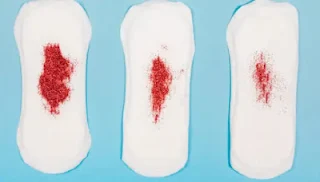When Will My Periods Stop? Understanding Menopause and Beyond
For many women, the question of when periods will stop is closely linked with the transition into menopause. Whether you're in your late 30s or early 50s, understanding how menstruation ends can help you prepare mentally, physically, and emotionally for this life change.
When Do Periods Normally Stop?
Periods generally stop due to menopause, which usually occurs between the ages of 45 and 55. The average age for menopause in the United States is around 51.
Menopause is defined as the absence of a menstrual period for 12 consecutive months.
What Is Perimenopause?
Before your periods stop completely, you enter a phase called perimenopause. It can last anywhere from a few months to 10 years.
- Irregular periods are the hallmark sign of perimenopause.
- Hormone levels, particularly oestrogen, fluctuate during this time.
- You may still ovulate occasionally, which means pregnancy is possible.
Signs That Your Periods Are About to Stop
Some common signs that menopause is approaching include:
- Shorter or longer menstrual cycles
- Skipped periods or spotting between cycles
- Hot flashes and night sweats
- Mood changes and irritability
- Changes in libido
- Vaginal dryness
What Happens After Periods Stop?
Once menopause sets in, your ovaries stop releasing eggs and your body produces significantly less oestrogen and progesterone.
This hormonal shift can lead to:
- Bone thinning (osteoporosis)
- Higher risk of heart disease
- Changes in skin elasticity
- Weight gain, especially around the abdomen
When Should You See a Doctor?
Consult a healthcare provider if you experience:
- Heavy or prolonged bleeding
- Bleeding after sex
- Spotting after periods have stopped
These could be signs of underlying health issues and not just menopause.
Can Periods Stop Early?
Yes, menopause before age 40 is called premature or early menopause. Causes include:
- Genetics
- Certain autoimmune diseases
- Cancer treatments like chemotherapy or radiation
- Surgical removal of ovaries
Real-Life Experience
Anna, 47, noticed her cycles were becoming irregular and eventually went three months without a period. “I thought I was pregnant,” she says, “but my doctor confirmed I was entering menopause.”
What About Hormone Replacement Therapy (HRT)?
HRT is an option for managing menopause symptoms, especially if they interfere with daily life. It helps:
- Reduce hot flashes and night sweats
- Prevent bone loss
- Improve mood and sleep
However, HRT isn’t suitable for everyone, especially women with certain cancers or blood clots. Always consult your doctor.
Tips for Managing the Transition
- Eat a balanced diet rich in calcium and vitamin D
- Exercise regularly to maintain bone strength and manage weight
- Stay hydrated and reduce caffeine intake
- Practice stress management techniques like yoga or meditation
- Use vaginal moisturisers or lubricants to ease dryness
FAQs
- Can I get pregnant during perimenopause? Yes, until you’ve gone a full year without a period, contraception is still recommended.
- Are there natural remedies for menopause symptoms? Yes, herbs like black cohosh, red clover, and soy isoflavones may help but should be used under supervision.
- Does menopause affect mental health? Hormonal changes can trigger anxiety, depression, and mood swings in some women.
Internal Links for Further Reading
Final Thoughts
Knowing when your periods will stop is less about predicting a specific age and more about recognising the signs your body gives. Whether you’re navigating perimenopause or full menopause, support and knowledge can empower you through this natural phase of life.

